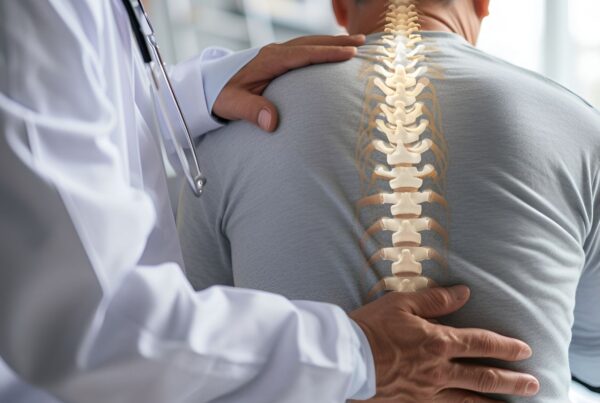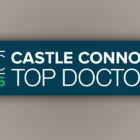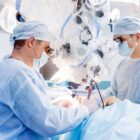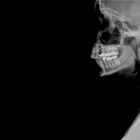Being prepared for your upcoming craniotomy is a broad concept. It means being prepared for your actual procedure and knowing what to do the day of surgery, but it also means having a clear idea of what to expect during your recovery. Knowing what to expect after a craniotomy will enable you to prepare both mentally and physically, helping set your mind at ease through the process. The following information will help you better understand what to expect during your recovery at the 24-hour, one week and one-month points, as well as immediately following your procedure.
What is a Craniotomy?
A craniotomy is often the first step in brain surgery procedures used to treat a variety of conditions. These include brain tumors, vascular conditions and neurological diseases. The goal of a craniotomy is to provide the neurosurgeon access to the area of interest. To accomplish this, the surgeon removes a small section of skull, treats the affected area, then replaces the bone and closes the soft tissues. Once the procedure is complete, you will begin your recovery.
What to Expect After a Craniotomy: Your Recovery
Because a craniotomy is part of the surgery to treat many conditions, your recovery is going to be a very personal process. Much will depend on the condition being treated, as well as your individual health factors. While your personal doctor will be the best person to discuss your specific recovery outlook, it can be helpful to understand what to expect after a craniotomy on a general level.
Immediately After Your Procedure
Immediately following your procedure, you will spend about an hour in the post-anesthesia care unit. During this time, your doctor will monitor your vital signs, such as your blood pressure and breathing. Once you have stabilized, you will be transferred to the ICU for close monitoring. Your care team will be watching for signs of any side effects or complication following surgery.
One Day After Your Procedure
One day after your surgery, you will be transferred from the ICU to the neurology floor where most of your monitoring devices will be removed. The day after your surgery, you may feel tired. It is important you rest during this time and give your body a chance to heal.
Day Two After Your Procedure
Day two after your operation, the goal is to work with physical therapists to ensure you are walking, eating and recovering properly. During this time, you may receive medications to help ease nausea and pain.
Your doctor will assess your symptoms and recovery and decide when you are ready to head home. Most patients spend about three days in the hospital recovering after brain surgery. However, remember that this will depend on your condition and health factors.
We are more than surgeons,
we are your support system.
One Week After Your Procedure
One week after your procedure, you will probably still feel very tired during this time. It is very important to get plenty of rest. You will also be put on activity restrictions, limiting things like strenuous activity and heavy lifting. Your doctor may also ask you not to drive, especially if you are taking certain medications to ease pain and/or nausea.
To help you during your recovery, you might want to arrange for someone to help you with chores around the house, running errands and childcare, especially during this first week. This is one reason why knowing what to expect after a craniotomy is important. Expect to be tired, on activity restrictions and possibly unable to drive, and plan accordingly.
At this point, you will have a one-week follow-up appointment. During this time, you will have sutures or staples removed and may have follow-up imaging.
One Month After Your Procedure
A month after your surgery, you will likely still be on activity restrictions. Most patients will require 6-12 weeks of healing before returning to previous activity levels. By one month out, you will have had at least one follow-up visit with your personal doctor, who will assess your recovery and make changes to your activity restrictions accordingly.
If you experienced symptoms prior to your procedure, you may be feeling relief by this point. However, this depends on many factors and should be discussed with your doctor before treatment. He or she will be able to give you the most accurate idea of what to expect after your procedure based on your individual condition.
Your Personal Recovery Process
Learning as much as you can about what to expect after a craniotomy and further treatment is a great way to prepare yourself for your procedure. Your condition is unique, and the symptoms you experience, as well as your personal health factors, will not be the same as the next person’s. As such, your recovery process will be just as unique.
While the guidelines here can give you a general idea of what to expect after a craniotomy, it is important to continue the discussion with your own personal doctor. He or she knows your health history and the particulars of your condition and will be able to relate the information here to your specific case. In doing so, you will be able to better understand what you can anticipate during your individual recovery.
As you move forward through the treatment process, continue to educate yourself about your condition and procedure. Knowledge translates into confidence, allowing you to rest easier during this time. If you still have any questions about your recovery or any other aspect of your care, be sure to bring them to your personal doctor. He or she will help set your mind at ease to ensure you are comfortable before, during and after your treatment.
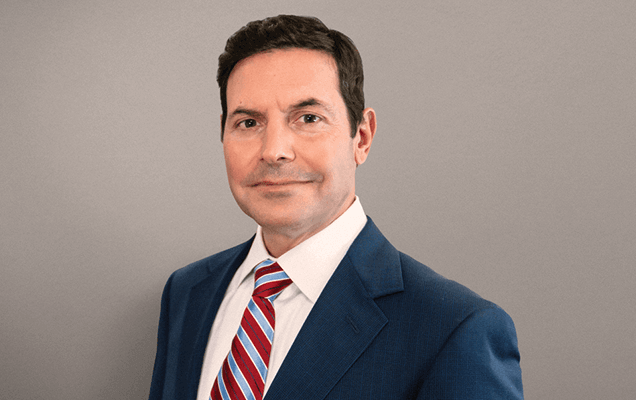
About Dr. David Estin
Dr. David Estin is an accomplished neurosurgeon in Central Jersey and is a proud member of Neurosurgeons of New Jersey, practicing out of their West Long Branch office conveniently located on Highway 36 West. Dr. Estin specializes in the treatment of brain tumors and spinal disorders. He has particular expertise in the use of endoscopic techniques to remove pituitary tumors at the base of the brain through the nose. He also has special expertise in robotic spine surgery and artificial disc replacement in the neck. He has vast expertise in Gamma Knife, CyberKnife, and minimally-invasive spine surgeries. With over 20 years of experience, Dr. Estin is recognized as one of the top surgeons in Monmouth County. He's accepting new patients.
Recent Posts:
